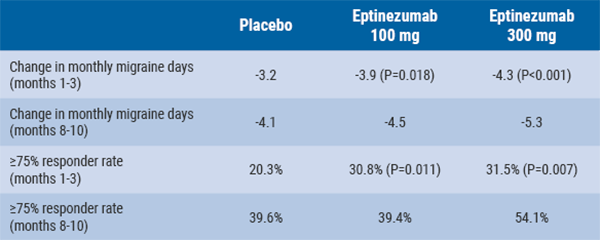Elezanumab
Elezanumab is a fully humanised monoclonal antibody directed against repulsive guidance molecule A (RGMa). In a phase 1, double-blind, placebo-controlled, randomised, escalating multiple-dose study, elezanumab was well-tolerated and did not consistently result in symptom worsening in patients who received multiple doses of up to 1,800 mg [1].
A total of 20 MS patients (2 with SPMS) were randomised to 150 mg, 600 mg, or 1,800 mg elezanumab or to placebo. The most common AE was headache (25% of patients); 3 patients had a relapse. Free soluble RGMa decreased with increasing levels of elezanumab in CSF, while total RGMa increased linearly with CSF elezanumab exposure. Two phase 2 studies are on their way: RADIUS-R and RADIUS-D, for relapsing MS and progressive MS patients, respectively.
Evobrutinib
Evobrutinib is a highly specific oral inhibitor of Bruton’s tyrosine kinase (BTK), a key regulator of B cell and macrophage functions implicated in MS. This is the first BTK inhibitor demonstrating reduction of disease activity in an autoimmune indication [2].
In a double-blind phase 2 study, 267 adult relapsing MS patients were randomised to evobrutinib 25mg QD, 75mg QD, 75mg BID, open-label dimethyl fumarate (240 mg BID; reference arm), or placebo for 48 weeks. Placebo-treated patients switched to evobrutinib 25mg QD after 24 weeks. Evobrutinib 75mg QD and BID significantly reduced the total number of T1Gd+ lesions at week 12, 16, 20, and 24 versus placebo, which was the primary endpoint. There was a significant dose response (P=0.001).
Liothyronine
In a phase 1b open-label study, liothyronine (synthetic tri-iodothyronine: T3) appeared safe and well-tolerated in 20 patients with relapsing or progressive MS [3].
T3 is a licensed product most commonly used to treat hypothyroidism and myxoedema coma. The rationale for using it in this study was that thyroid hormones play a role in early CNS development including promotion of myelination. In animal studies, T3 regulated oligodendrocyte differentiation and maturation. Every participant received T3 according to a standardised dose-titration schedule. The primary endpoints were safety and tolerability. Most common adverse events included gastrointestinal distress and abnormal thyroid function tests; no clinical thyrotoxicosis occurred. T3 was overall well-tolerated without treatment-related severe or serious adverse events. A larger trial will help assess whether it promotes oligodendrogenesis and enhance remyelination in vivo, limits axonal degeneration/apoptosis, and improves function.
1. Ziemann A, et al. AAN 2019, S56.001.
2. Montalban X. et al. AAN 2019, S56.004.
3. Newsome S, et al. AAN 2019, S56.003.
Posted on
Previous Article
« Fremanezumab efficacy and safety maintained over 1 year Next Article
Two experimental antibodies reduce amyloid levels »
« Fremanezumab efficacy and safety maintained over 1 year Next Article
Two experimental antibodies reduce amyloid levels »
Table of Contents: AAN 2019
Featured articles
Letter from the Editor
Interview with Prof. Natalia Rost
Alzheimer's Disease and other Dementias
Amyloid PET in cognitively impaired patients
Tight blood pressure control lowers risk of mild cognitive impairment
Epilepsy
Headache and Migraine
Multiple Sclerosis and NMOSD
Immune tolerance by peptide-loaded tolerogenic dendritic cells
Biotin, ocrelizumab, and ibudilast in progressive MS
No increased MS relapse risk postpartum
Neuromuscular Disorders
First-ever effective and safe treatment of CMT1A
Parkinson’s Disease and other Movement Disorders
Leukaemia and hypertension therapies tested in Parkinson’s disease
Stroke
Miscellaneous
Possibly lifesaving therapy in refractory PML
New AAN guideline for treating Tourette syndrome
Subspecialty teleneurology: feasible and highly valued
Related Articles

July 30, 2019
Eptinezumab reduces mean monthly migraine days
July 30, 2019
Encouraging results zilucoplan in myasthenia gravis
July 30, 2019
First-ever effective and safe treatment of CMT1A
© 2024 Medicom Medical Publishers. All rights reserved. Terms and Conditions | Privacy Policy

